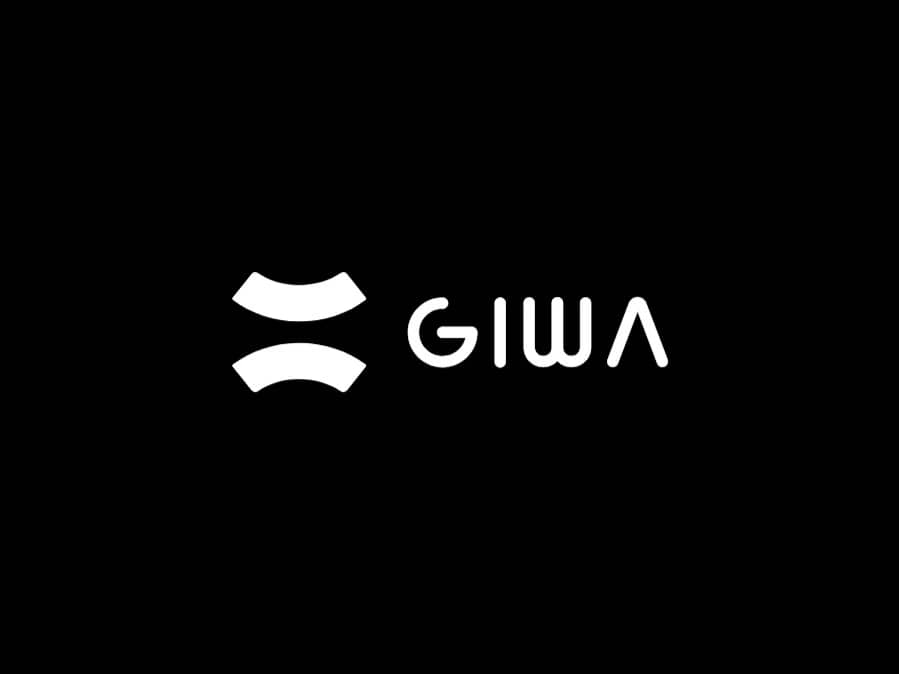订阅 wiki
Share wiki
Bookmark
Giwa
0%
Giwa
Giwa(Web3访问的全球基础设施)是由韩国最大加密货币交易所Upbit的母公司Dunamu Inc.基于OP Stack构建的以太坊Layer 2区块链。[1] 该项目于2025年9月9日在Upbit D Conference (UDC) 2025上正式宣布,该公司在会上公布了其测试网,并概述了其扩展到核心金融基础设施的愿景。[2] [3] 在正式发布活动之前,该项目的存在于2025年9月初首次被报道,基于商标备案和市场新闻。[5]
概述
根据其官方文档,Giwa 的使命是“打破复杂且昂贵的 web3 壁垒,创建一个对每个人来说都简单、有趣且易于访问的区块链世界。”[1] [3] 该项目是韩国金融科技公司 Dunamu 的一项战略举措,旨在将其业务从 加密货币 交易所服务扩展到核心 区块链 基础设施。“Giwa”这个名字既是“全球 Web3 访问基础设施”的首字母缩写,也指韩国宫殿和韩屋屋顶上使用的传统弯曲粘土瓦片,象征着遗产、保护和基础结构。[2] [3]
随着 Giwa 的推出,Upbit 加入了其他开发了自己的区块链的主要加密货币交易所的行列,例如 Coinbase 及其 Base 区块链,以及 Binance 及其 BNB Chain。此举表明了一种更广泛的行业趋势,即交易所旨在围绕其平台构建整个生态系统,从而促进开发者活动,创造新的用例,并在简单的交易费用之外获取价值。[2]
历史
Giwa 项目的开发最初是从 2025 年末发生的一系列事件中推断出来的。在 9 月之前,Dunamu 公司向韩国知识产权信息服务局 (KIPRIS) 提交了多个商标申请。这些申请是针对名称“GIWA”的,并包括程式化的徽标,表明计划中的品牌标识。 [3]
2025 年 9 月 8 日,科技和加密货币新闻媒体开始报道这些申请,将其与 Upbit 母公司开发的新区块链联系起来。这些报道引用了“市场新闻”和对公共商标记录的发现,是该项目首次公开提及。 [4]
2025 年 9 月 9 日,在首尔举行的 Upbit D Conference (UDC 2025) 上,这一猜测得到了证实。Dunamu 首席执行官吴庆锡在主题演讲中正式宣布推出 Giwa Chain,并提出了更广泛的下一代基础设施路线图。[4] [2] 在宣布时,Giwa 的测试网 Giwa Sepolia 已经运行。对其区块浏览器和 GitHub 帐户的分析表明,开发工作已经进行了至少几周,超过 400 万个区块已经添加到测试网中,与其一秒的区块时间一致。[2]
技术
架构
Giwa 是一个 Ethereum Layer 2 区块链。Layer 2 解决方案构建在主区块链(在本例中为 Ethereum)之上,以提高可扩展性并降低成本。虽然 Ethereum 提供了强大的安全性和去中心化,但它可能存在一些限制,例如交易速度慢和 gas 费用高,尤其是在网络高度拥塞期间。Giwa 通过在其自己的链上处理交易,然后捆绑它们,再将数据和结果记录回 Ethereum 主网来解决这个问题。这种乐观 Rollup 结构使其能够继承 Ethereum 的安全性,同时以显著更高的速度和更低的成本运行。[1] [2]
该区块链是使用 OP Stack 构建的,OP Stack 是一个标准化、开源的开发堆栈,为 Optimism 及其互操作 L2 的“超级链”愿景提供支持。基于由 Optimism Foundation 维护的 OP Stack,可以灵活地升级和自定义网络,因为开源技术在不断发展。[1] [3]
主要特性
Giwa网络的设计包含几个关键特性,旨在提升用户和开发者的体验:[1]
- 快速区块时间: Giwa每秒生成一个区块。这种快速的区块生成旨在提供近乎实时的交易最终性,为构建在网络上的应用程序提供更流畅、更快速的用户体验,尤其是在游戏和数字金融等领域。[2] [3]
- EVM兼容性: 该网络与以太坊虚拟机(EVM)完全兼容。这是一个至关重要的特性,因为它允许开发者部署他们现有的Solidity智能合约,并使用熟悉的开发者工具,如Foundry、Hardhat和Remix IDE,而无需进行重大修改。这降低了希望在Giwa上进行开发的开发者的入门门槛。[2] [3]
- 基于OP Stack的L2: 由Optimism基金会维护的OP Stack提供支持,从而实现灵活的升级和定制。
这些特性使Giwa成为在Dunamu和Upbit生态系统中开发和部署去中心化应用程序的平台。[1]
交易费用
Giwa网络上的交易费用由两个不同的部分组成,以支付Layer 2处理和Layer 1安全的成本。[5]
- 执行费用: 这是在Giwa L2网络上执行交易相关的成本。它的功能类似于以太坊上的gas费用,计算公式为(gas用量)×(gas价格)。Giwa链采用了EIP-1559机制来提高费用效率。执行费用根据Giwa(Layer 2)上的网络拥塞情况而波动。[5]
- 安全费用: 此费用涵盖将交易数据从Giwa(Layer 2)发布到以太坊主网(Layer 1)的成本。此过程对于确保数据可用性至关重要,这使任何人都可以验证链的状态,并确保Giwa继承以太坊的强大安全性。安全费用取决于以太坊(Layer 1)上的网络拥塞情况。[5]
通常,执行费用高于安全费用。这种两部分结构确保用户为更快的L2上的计算和L1区块链提供的安全性付费。[5]
Giwa Sepolia 测试网
Giwa 的测试网,名为 Giwa Sepolia,已随项目的正式发布一同启动并公开。同时提供了一个区块浏览器,用于跟踪测试网活动,提供交易、区块和智能合约交互等网络操作的透明度。测试网包含内置的开发工具,以方便 EVM 兼容合约的迁移和部署,允许开发者立即开始试验网络。[2]
为了获取用于开发和测试的测试网 ETH,网络提供了一个 工作量证明 (PoW) 水龙头。该系统要求用户在其浏览器中执行计算工作,以换取 测试网 代币。在输入他们的钱包地址并挖掘足够的时间后,用户可以领取他们的奖励。这种 PoW 机制是为了防止恶意行为者耗尽水龙头的资金或积累足够的测试网 ETH 来发起垃圾邮件攻击。为了确保公平分配,每个钱包每天最多只能挖掘 0.05 ETH。[8]
愿景和用例
金融基础设施和稳定币
在 UDC 2025 大会上,Dunamu 首席执行官吴庆硕强调,Giwa 旨在成为一个为金融领域提供实际效用的区块链。该战略的核心部分是计划支持与韩元 (KRW) 挂钩的本地货币稳定币。[3] [4]
吴庆硕认为,稳定币的激增是“金融范式转变”的核心驱动力,也是向 Web3 过渡的加速器。他指出,在新兴经济体中,与美元挂钩的稳定币越来越多地用于汇款和支付,这证明了一种基于现实效用的信任运动。通过支持韩元稳定币,Dunamu 旨在将 Giwa 定位于韩国这一转变的最前沿,从而可能在支付、资产管理和资本市场中实现新的应用。[4] 这项举措符合韩国更广泛的国家利益,即建立本地稳定币的监管框架,以增强该国在数字时代的货币主权。[3]
生态系统
作为 UDC 2025 公告的一部分,Dunamu 透露 Giwa 是一个更大的基础设施路线图的组成部分。该公司还在为网络开发一个名为 Giwa Wallet 的原生钱包系统,以简化用户与区块链的交互。[3] 该生态系统还包括其他机构级服务,例如全球旅行规则解决方案 'VerifyVASP' 和机构托管服务 'Upbit Custody'。Giwa 与这些服务的集成表明了一种战略,即创建一个全面的端到端 Web3 基础设施,以满足 Upbit 生态系统中零售用户和机构客户的需求。[4]
为了进一步构建其生态系统,Giwa 引入了几项关键服务,旨在增强网络上的信任、身份和用户体验。
Dojang
Dojang 是一项服务,可在 Giwa 网络上将受信任的链下信息作为链上证明发布。Dojang 构建于 Ethereum Attestation Service (EAS) 之上,通过将链上钱包地址与经过验证的链下信息相关联,充当 Giwa 生态系统的基础信任层。这允许用户建立链上身份,而无需通过其钱包直接暴露个人身份信息。[6]
可以通过 Dojang 发布的主要数据是“已验证地址”,它确认钱包地址已通过批准的发行方的 Know Your Customer (KYC) 验证。截至发布时,唯一的发行方是 Upbit Korea,并计划在未来加入更多发行方。此服务的一个关键用例是“链上验证”,可以通过 Giwa 钱包发布,以实现与 Web3 金融服务更安全的交互。[6]
GIWA ID
GIWA ID 是一个 Web3 用户名服务,通过将复杂的十六进制地址替换为个性化的、人类可读的名称,例如 username.giwa.id,来简化钱包交互。此服务免费提供给通过 Dojang 服务获得“已验证地址”证明的用户。[7]
从技术上讲,GIWA ID 作为在 以太坊 名称服务 (ENS) 上注册的 giwa.id 域的子域来实现。这确保了 GIWA ID 不仅与 Giwa 网络兼容,而且与更广泛的 以太坊 生态系统以及任何集成 ENS 的 dApp 兼容。GIWA ID 被设计为不可转让的灵魂绑定代币 (SBT),这意味着每个验证钱包的用户只能注册一个 ID,并且不能出售或转让。这种设计增强了安全性,因为将资金发送到 GIWA ID 可以确保接收者的钱包已通过验证。[7]
GIWA ID 的有效性与钱包的“已验证地址”状态直接相关。如果验证失效(例如,由于 KYC 过期),则 GIWA ID 将被撤销。但是,用户有 90 天的宽限期,在此期间可以重新验证其地址以自动恢复其原始 GIWA ID。在此期限之后,如果 ID 仍然无人认领,则原始所有者仍然可以在成功重新验证后恢复它。[7]
关键实体
Dunamu Inc.
Dunamu Inc. 是一家主要的韩国金融科技公司,也是提交“GIWA”商标的实体。 它最为人所知的是作为Upbit的母公司和运营商,Upbit 是韩国最大的加密货币交易所。 Giwa 的开发代表了 Dunamu 的一项重大战略转变,从促进现有数字资产的交易转向为新的数字资产创建基础技术,并扩大其在全球金融基础设施领域的作用。[4] [3]
Upbit
Upbit 是韩国交易量领先的加密货币交易所,由 Dunamu 运营。 尽管主要局限于韩国市场,但它是世界上最大的中心化交易所之一,每日处理数十亿美元的交易量。[2] [3] 虽然 Giwa 项目在技术上隶属于 Dunamu,但由于其公司关系,它与 Upbit 有着内在的联系。 Giwa 链有可能与 Upbit 的交易所服务集成,为新的代币上市、Upbit 生态系统内的 dApp 开发以及其他协同功能提供原生平台。 [3] [4]
发现错误了吗?
